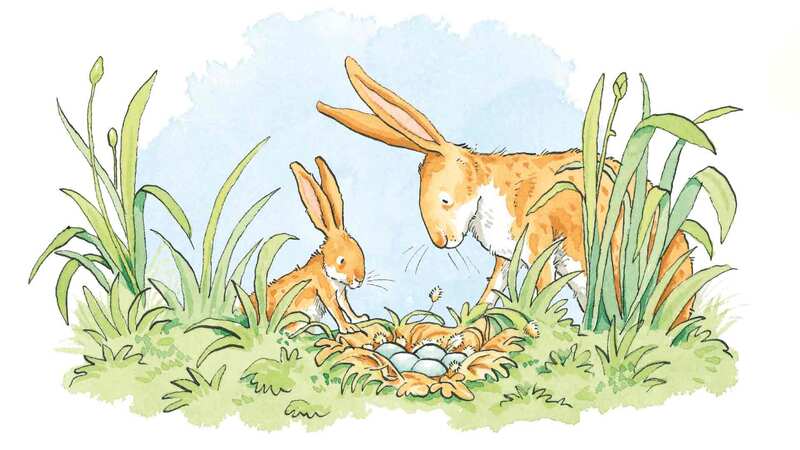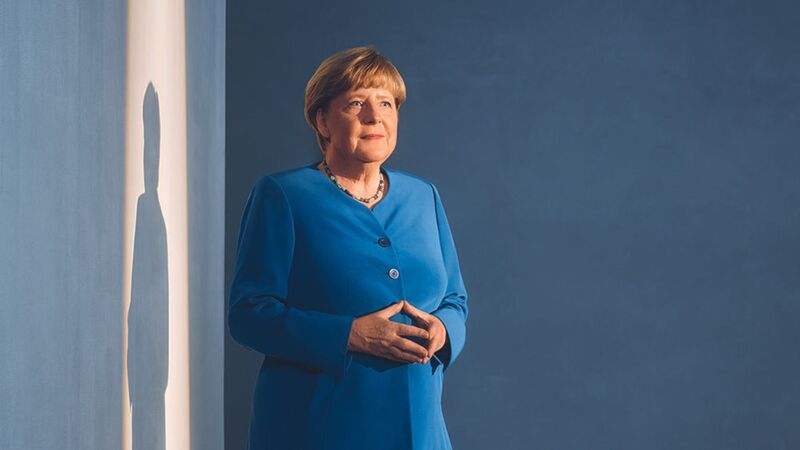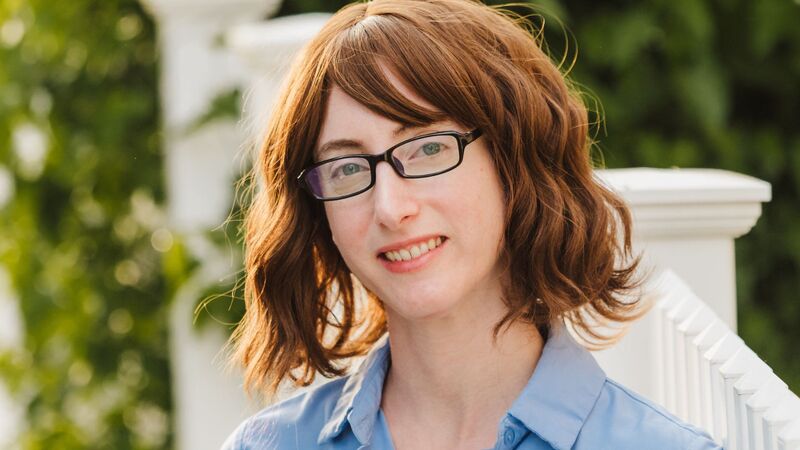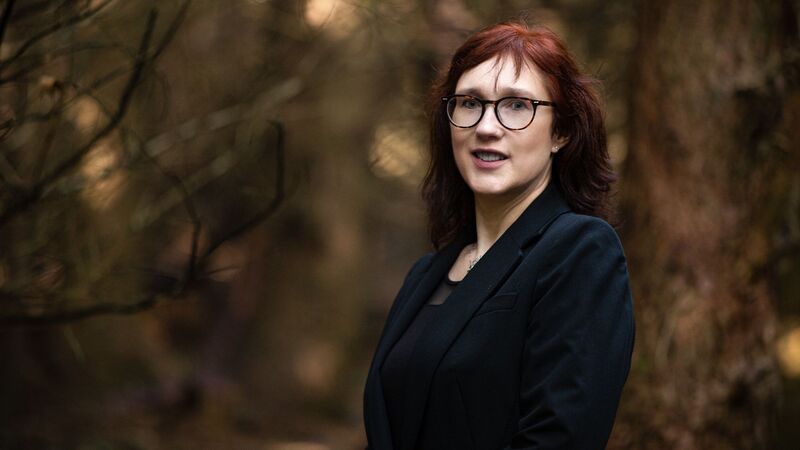You are viewing your 1 free article this month. Login to read more articles.
Trade bodies unite to issue guidelines tackling harassment in the workplace
The first sector-wide commitments to tackle harassment across publishing and bookselling have been published, following a joint effort from the Association of Authors’ Agents (AAA), the Booksellers Association (BA), the Publishers Association (PA) and the Society of Authors (SoA).
The two-page Industry Commitment to Professional Behaviour in Bookselling & Publishing follows a year of consultation across the trade bodies, following publication of The Bookseller’s harassment survey in November 2017.
The commitments were presented to The Bookseller at a briefing last week, attended by Lizzy Kremer (right) of David Higham Associates, who is also the current AAA president; SoA chief executive Nicola Solomon; deputy c.e.o. of the PA Emma House; and BA m.d. Meryl Halls.
The guidelines, underpinned by four main principles (see bottom of page), emphasise professionalism, dignity and respect, and highlight the power dynamics that can exist across publishing. Co-ordination of the commitments was handled by Kremer, who said she found The Bookseller’s survey, in which more than half of the 388 respondents said they had been harassed, "hard reading".
An initial consultation meeting was attended by people from across the associations and wider industry, and included a wide-ranging discussion of individual experiences. Kremer said: "I thought it was a really successful meeting; we listened hard to what we heard and then there was a really rigorous process of consultation within the associations. Each had to feel like they owned it and that was part of the process."
Broad range
The resulting commitment is aimed at everyone in the industry, from corporate publishers to individual authors, and features definitions of harassment and other forms of abuse. The consultation process also looked at concerns not directly related to sexual harassment but more generally to behaviour and conduct within the workplace and surrounding social environments, including discrimination, bullying and intimidation. Halls said: "It’s important to say [the commitment] has widened from harassment to encompass as much discrimination as we could reasonably describe. It [harassment] is the trigger, but it’s not the only issue."
The document urges people to ask about company policies regarding harassment. When asked if every company should have such a policy, Solomon described the practical challenges: "I think it depends on the size of companies, some authors are limited companies [but] I wouldn’t expect them to have a policy, but I do think everyone should be aware of the commitment. That is one of the great things about this, if you are concerned, you don’t have to be out there on a limb; you can send [your managers] a link to this commitment [document] and say, ‘This is the commitment’."
The representatives at the briefing acknowledged that as membership organisations they could not enforce adoption of the commitment, or provide recourse if an individual was unhappy with their company’s response to a situation. "There’s no responsibility or accountability through trade associations," Halls said. "However much we might have wanted to, there’s just no feasible way of doing it, short of setting up some kind of ombudsman for the industry. I can’t see that that would be an outcome because it would be laden with difficulties."
However, the document will be circulated widely to members, and posted on the umbrella bodies’ websites. While Kremer acknowledged the evaluation of the commitment’s success would be tricky, House said: "It is going to live on our websites, we do hope people will refer to it, we hope people will talk about it. The success will be the living and breathing of it—is the behaviour of people in the industry reflective of what’s in here?"
Nicola Solomon and Emma House
There were talks about setting up a formal phone line where harassment could be reported. "The setting up of a reporting line is one thing, but it’s what you then do, what you are empowered to do, with the things that have been reported," Kremer said. "I have no governance over my members. We all face similar challenges as trade associations, we’re not acting as employers in this context."
Solomon said: "We have to be really careful about due process, that’s one of the things we’re really concerned about. We ourselves can’t deal with allegations or adjudicate, and it’s not appropriate for us to do so."
A considered approach
The attendees at the briefing also addressed concerns about the length of time it had taken to create the document. Halls said: "A consultation of this depth and breadth takes months because of buy-in [from members].There has been feedback and it’s a much improved document."
Released publicly today (Friday 7th December), the code is accompanied by more than 20 supportivng statements from people in all hierarchies of the industry, including figures such as Hachette c.e.o. David Shelley, Penguin Random House HR director Val Garside, and Bonnier Books UK publishing director Eleanor Dryden.
"I feel so heartened that publishers, booksellers, agents and authors have all united together for this strong and principled public commitment," Shelley’s statement read. "Ours is an industry with multiple inherent power imbalances, and a document like this will help reinforce to everyone the importance of respect and thoughtfulness in all business dealings."
Garside said: "Achieving the complicated task of reaching consensus across the different industry bodies is a positive and important first step demonstrating an industry-wide commitment to ensuring a professional and dignified environment."
Mentor hope
Kremer told The Bookseller she hoped the commitment would lead to greater levels of support and mentoring across the trade.
She said: "One of the things I would love to see come out of this [would be] for all of us in the industry—particularly those who have more power than others—to act as mentors to colleagues, so that no one feels they have nowhere to turn, whether they’re a freelance, a contractor, an author or a young agent."
She added: "It does mark a change, in that we’re standing out, as associations that encompass the majority of the industry, and saying this is important to us, and that we do not tolerate this. So even though it is inevitable that on occasion people will experience harassment in our workplace—as they do in every workplace, unfortunately—they will experience it an environment where they feel they can go to their manager, their colleague, their peer mentor and say, ‘Look, I thought this wasn’t tolerated’."
The Principles
The Principles, laid out in the Industry Commitment to Professional Behaviour in Bookselling & Publishing, are as follows:
01 We in the books industry support creative expression and freedom of speech. However, our creative realm is also a professional one and we expect high standards of behaviour from everyone we encounter in the course of our work, including colleagues and customers.
02 We will protect the passion, imagination and creativity of everyone in the books industry. We will celebrate and promote diversity and inclusion so that all voices can be heard.
03 We will recognise our influence and make a commitment to work together to prevent abuse of power, creating a work environment free of discrimination, harassment (including sexual harassment), bullying and intimidation.
04 We will ensure that everyone in our industry is treated with dignity and respect so that individuals are supported and able to speak out.
The Terms
Harassment is defined by the Crown Prosecution Service as "unwanted conduct... which has the purpose or effect of violating an individual’s dignity or creating an intimidating, hostile, degrading, humiliating or offensive environment for that individual".
Bullying is defined by The Advisory, Conciliation & Arbitration Service as "offensive, intimidating, malicious or insulting behaviour, an abuse or misuse of power through means that undermine, humiliate, denigrate or injure the recipient".
Discrimination is defined by the Oxford English Dictionary as "the unjust or prejudicial treatment of different categories of people, especially on the grounds of race, age or sex".
Author: where "author" is used, it is implied to include creators including, but not limited to, illustrators, translators, spoken-word performers, graphic novelists and writers of books of all kinds.
The full commitment can be accessed at here. It has been issued to all members of the Associa- tion of Authors’ Agents (AAA), the Booksellers Association (BA), the Publishers Association (PA) and the Society of Authors (SoA) this morning (7th December)



















